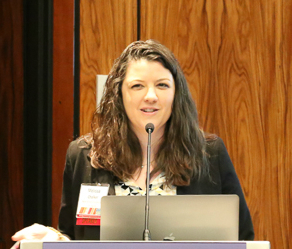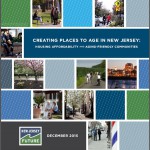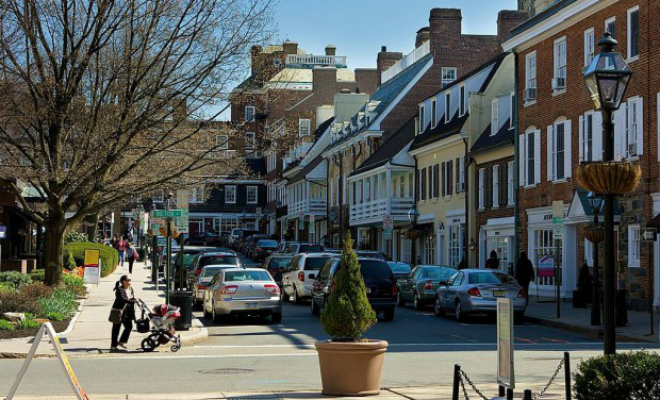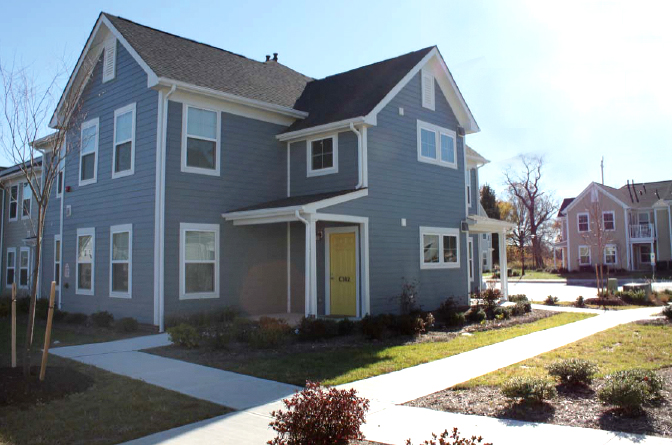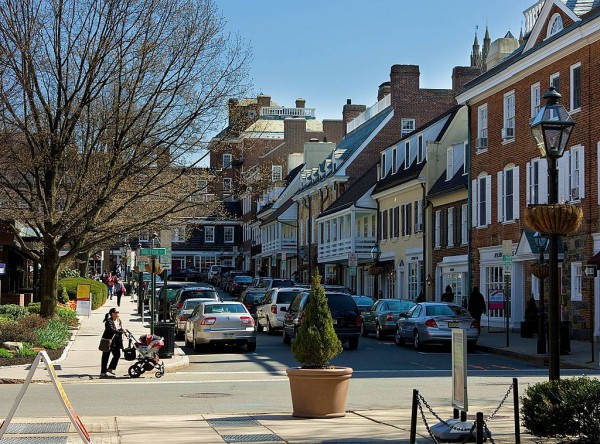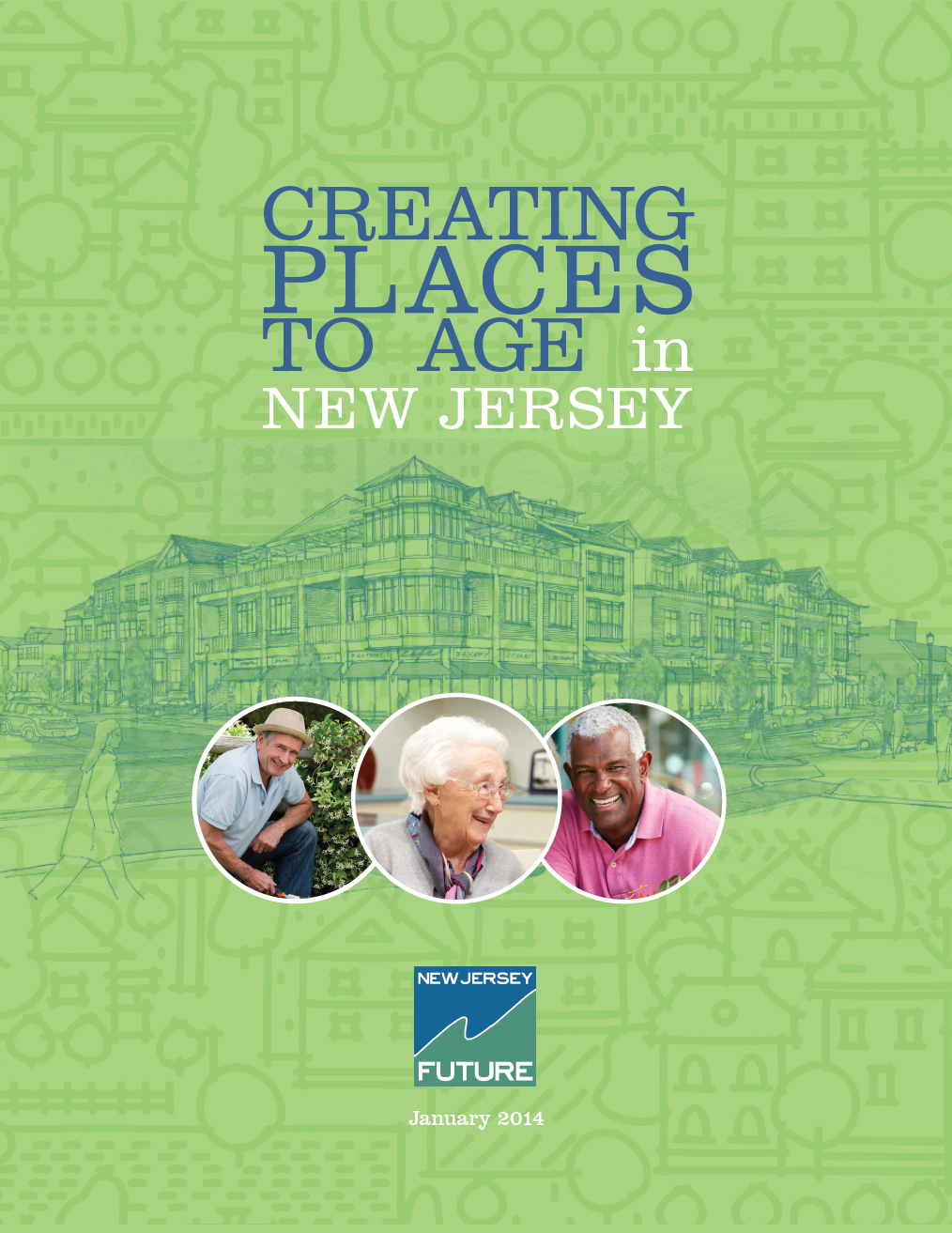New Jersey Future Blog
Making New Jersey’s Communities More Aging-Friendly
March 29th, 2018 by David Kutner
Land use characteristics that make a community inviting to older people are the same “smart growth” features that are appealing to all populations. These features – readily accessible, center-based locations that offer jobs, housing, entertainment, and amenities – characterize those places that Census data and research show are attracting growing populations of both Millennials and people 55 years of age and older. If New Jersey, ranked 10th in the nation for the number of residents age 60 and older, is going to retain and enhance its economic vitality and viability, its communities will need to recast land use regulations in order to enhance their aging-friendly characteristics.
The Aging-Friendly Is Everyone-Friendly session at New Jersey Future’s annual Redevelopment Forum explored how New Jersey’s changing demographics affect municipal economies; what makes a community aging-friendly; how communities can adjust to the evolving needs of their populations in order to enable residents to age in place; what benefits are gained by creating places that attract multi-generational communities; and how aging-friendly strategies differ for New Jersey’s varying community types. The presentations emphasized the considerable effort that will be required at both the local and state levels to accelerate systemic changes in New Jersey’s development patterns in order to keep pace with the needs of an older population that is growing rapidly and living longer.
Leigh Ann Von Hagen, senior research specialist for the Alan M. Voorhees Transportation Center and the Planning Healthy Communities Initiative at Rutgers and the panel moderator, noted that the benefits of aging-friendly communities are diverse and wide-ranging. Healthy community design – exemplified by places that offer a variety of housing options with convenient access to food, greenspaces, and employment – results in improved mental and physical health, stronger economies, and improved safety and mobility. But, she pointed out, healthy community design doesn’t happen by chance; local governments need to intervene to change the built environment. She also emphasized the critical need to create walkable communities, echoing the surgeon general’s 2015 Call to Action to address major public health threats. The surgeon general’s report implicates America’s car culture and sprawling land use patterns as major contributors to the problem of communities that are inaccessible by foot or bike – underscoring the imperative to create streets for people, not just cars.
Tim Evans, New Jersey Future’s director of research, described the large surge in the population aged 55 and older, raising the question of how communities will address their unique needs and what it will mean for community form. He particularly emphasized the importance of providing a greater range and quantity of appropriate housing options than is currently available in many communities, noting that New Jersey has the highest proportion of older residents who are housing-cost burdened in the country.
Julia Stoumbos, who directs strategic program development in the field of aging in place for The Henry and Marilyn Taub Foundation’s Aging Friendly Communities Initiative, noted that social institutions are not changing as rapidly as necessary to keep pace with the rapid transformation in longevity. Community design has yet to reflect the needs and requirements of a population that is living ever longer. She noted that the aim of the Aging Friendly Communities Initiative is to transform communities to promote accessible transportation; a supportive social structure that creates educational and employment opportunities; open spaces and built environments that are amenable to older adults; and inclusion of older adults in civic planning, programming and resource allocation.
Emily Greenfield Cohen, associate professor of social work at Rutgers, discussed the intersection among redevelopment, city planning and aging-friendly communities, the aim of which is to create places that are attractive to all generations. She noted that these objectives can be achieved by integrating complete streets, smart growth, and development that responds to current demographic trends. She described aging-friendly communities initiatives already under way in a dozen north-Jersey communities in Bergen, Union, Essex and Morris counties.
Melissa Chalker, deputy director at the New Jersey Foundation for Aging, emphasized that aging-friendly implies affordability for all. She noted that New Jersey’s statewide Elder Economic Insecurity Rate (EEIR) in 2017 was 54 percent: More than one half of New Jersey’s retired population lack sufficient annual income to insulate them against poverty as they age. She also noted that affordable homes that are available to meet the needs of older adults are sometimes neglected and poorly maintained, and that there is insufficient supportive housing to address mental health needs. She indicated that community readiness to address these issues, and the degree to which they will need to, will vary – but that the need for more resources to assure the continuity of the effort is universal. Communities will take different paths to become aging-friendly, so there is a need for local champions to promote and sustain local initiatives. Municipalities will need to change zoning to encourage development that is aging-friendly and that permits a mix of uses in proximity to each other, and to foster enhanced mobility and accessibility. Local zoning must allow for a range of housing options, types and costs. The state needs to redirect funding and policies to respond to the needs of older adults and to support and promote aging-friendly planning. In addition, expanded advocacy work is necessary to make sure state legislators know they can play an instrumental role in addressing the needs of New Jersey’s growing population of older adults.

